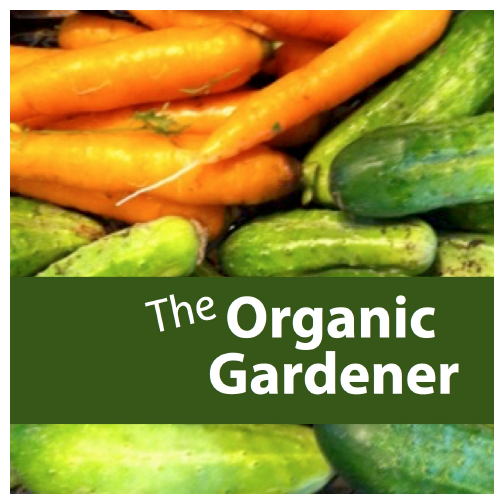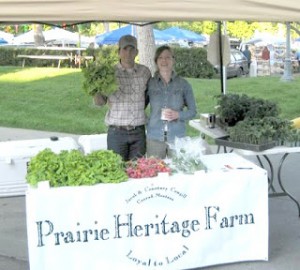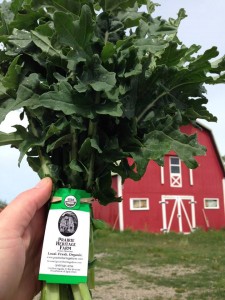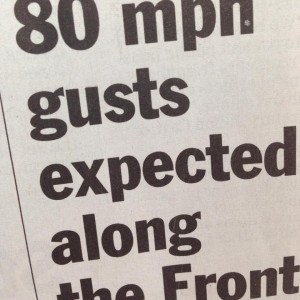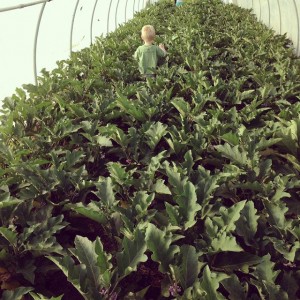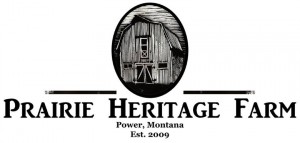104. Jacob Cowgill | Prairie Heritage Farm | Power, MT
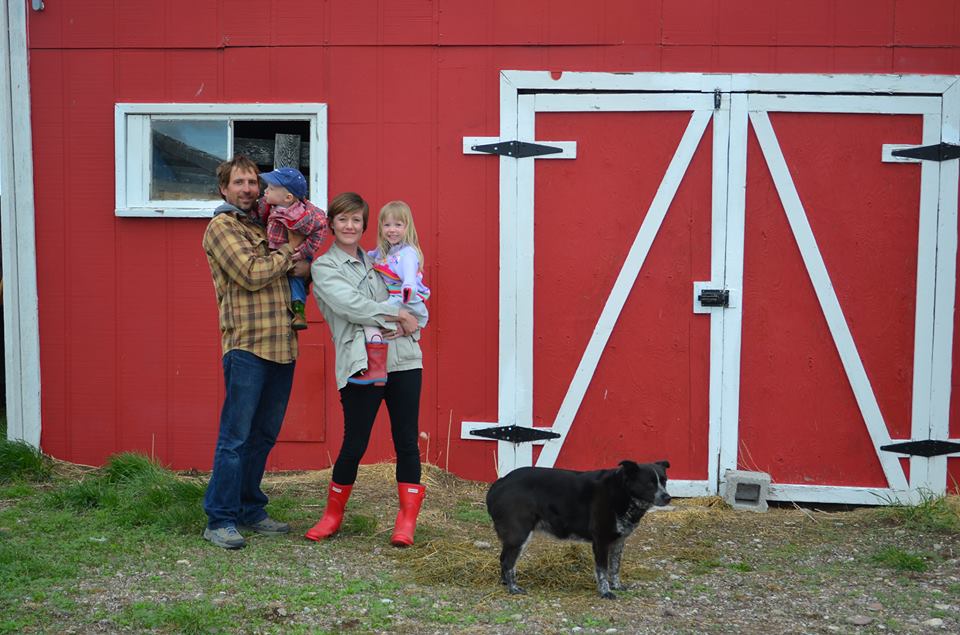
Jacob Cowgill runs Prairie Heritage Farm with his wife Courtney, where they grow fresh vegetables, heritage turkeys, ancient and heritage grains (Prairie Farro being our favorite), lamb and kiddos. They sell most of what they grow through Community Supported Agriculture, or CSA, farm shares in the Great Falls area just outside Power, MT. He is a member of AERO (Alternative Energy Resource Organization as well as one of the renegade farmers Liz Carlisle wrote about in the Lentil Underground from episode 103.
Tell us a little about yourself.
My wife and I run a small farm on the Fairfield Bench on which is about 7 miles NW of Great Falls, east of Power. I was born and raised NE of Great Falls. My wife Courtney born outside of Dutton MT.
We initially met each other in 8th grade and she was in 6th grade, we’d known each other for a long time, both led our separate lives, both went to UMT and both left Montana after college and gone for about a year and a half, and pretty much within the same week we both moved back to Montana we reset, and eventually got married, living in Missoula at the time, wanted to move back home. We are close to both of our parents. I wanted to start a farm and Courtney was willing to go along with it.
So we started in 2009 on some leased land outside of Conrad, about 60 miles north of Great Falls. We found our own place here on the Fairfield Bench and have been there since. We primarily produce fresh vegetables for the farmer’s market and CSA. We have been getting into the vegetable seed production and we also raise some ancient heritage wheats and barley, we’re very small scale on heritage grain, and we do it on less then 20 acres.
We have a small garden, he built a mini farm this year I call it on about a 1/4 acre to 1/3 acre. So can you grow lentils on a small piece like that?
for a home scale
you can grow quite a bit for personal use on a small piece of land
trick comes not so much in the planting, but in the harvesting, the threshing and the cleaning.
grow on a bit larger scale
would not be feasible to plant let alone and harvest and thresh and clean by hand, we do utilize a drain drill to plant, and combine to harvest and some small season equipment for cleaning. For a home gardeners they are not insurmountable just a little more labor intensive for the grain to be free of the head and winnowed to be clean enough to eat.
Tell me about your first gardening experience?
I don’t have any distinct memory of gardening growing up, but my parents both garden, and we had a really big garden when I was a kid. My dad built this beautiful dry stack stone wall around it, I don’t remember working in the garden. My dad, always tells a story about me being a baby and touching the dirt and not wanting to get dirty.
I always remember the asparagus patch being so prolific, but I don’t have a memory as a kid being out there gardening with my parents, my actual first memory of me gardening was when I was way older in my twenties.
What does organic gardening/earth friendly mean to you?
You have to at the very least giving back more then you take. It’s certainly a complex question, I think that probably the friendliest thing you can do to the earth is probably not garden, turing it over and tilling it but anytime your doing that you’re doing a certain amount of harm to the soil.
Who or what inspired you to start using organic techniques?
IDK, it was just always a part of me, I don’t think there was anyone particular person or people, I went from not gardening to gardening. There was no transition from chemicals and moving off of them, I didn’t have a history to it …. so it was basically a no brainer, there wasn’t anyone that inspired me to do that, it was just the was the way it was…the way it should be.
How did you learn how to garden organically?
Yeah, pretty much, it’s been a steep learning curve for the past 9 years or so, 9-10 years. And it’s been real seat of the pants, on the ground learning, which means that you make a ton of mistakes. Even now after 7 years of farming for ourselves on our own place, I’m still a beginner, there’s so much to know and learn, I’m still figuring a lot of stuff out… even some basic stuff still figuring out. So my farming education has been by being thrown into it.
learning
Don’t feel bad because my husband’s been growing for over 40 years and we’re still just beginning. We’re trying to figure out how to grow just for us and then for a CSA? Like this year we planted that mini-farm and IDK we’ve been out of potatoes for like a month already?!
What we know about the earth about the soil changes, and I’m talking about the experts ten years ago were wrong about some things. We’re learning more about soil life
simultaneously, trying to get a basic grasp of this gardening act and at the same time in the background the experts are still figuring things out, trying to do 2 things at once ,your trying to learn about it and keep up!
Tell us about something that grew well this year.
Yeah, you know our kale grew exceptionally well, I can’t take a whole lot of credit for that, it’s just that kale is such a remarkable plant.
we planted one succession in the high tunnel, we have an unheated high tunnel for early spring harvest then we planted 3 more successions so we had a constant supply of kale. Every succession did really well after that.
One variety?
We typically, this was not a typical year, but in a typical year we would plant more or less 3 basic varities. One is gonna be your dinosaur lacinato kale or tuscan kale, some kind of green curly kale, and the 3rd will be a red curly or red Russian kale. Typical year, we would plant those 3 basic varieties and we would plant them do a succession every 4 weeks by the time the second succession maybe the first succession is tapering off, the leaves getting a little bit tougher, and the stems getting a little more woody.
What made this year not typical is we typically order our green curly kale seed, we usually order the winter bore variety, which is a very standard hardy, hybrid green curly variety. As it turns out it, it is only produced in one place in the world, I think somewhere in the Netherlands. They had a crop failure, so everybody that relies on winter bore variety, that means almost every market farmer was out of winter bore variety of kale. We ended up looking for any open-pollinated
7 -8 different varieties
start in the green house and transplant
We wanted to find a variety we like. leaf shape may be different taste may be different
As a market farmer we want to grow a variety that our customers want
trick wouldn’t know what it would look like till it was full grown. That was actually a fun experiment, we found a few varieties of open pollinated kale
fourth succession of kale hopes that it will over winter
wont go through
has to go through a winter to produce seed. If it survives the winter it will produce seed next spring.
Is that the point to save your own seed?
the point is that we’ll save the seed from
we have 5 different varieties we’re trying to over winter, if all 5 survive the winter then we have to make a decision on what we want to keep.
Kale is a crosser so the varieties will cross with one another at the flower stage
will have to pick the one we want to grow, we have to eliminate the other 4.
otherwise it will cross pollinate with the other ones. WE want to find a good marketable curly kale variety and one that will survive the winter where we are which is pretty harsh, often they are open winter with 30º spells.
What does that mean open winter?
The snow won’t stick around. It will snow but the wind will blow it off
snow is a great insulator, snow over the winter acts as an insulation blanket
cover crop like winter wheat
In Liz’s book the Lentil Underground? Is that why you like to keep your kale in their over the winter.
it will help with that, we want to minimize the bear soil because of the high winds that we have it helps with the erosion, that’s where most of our erosion comes from.
What are you looking for in your variety?
For us we’re looking at both what our customers want and what we want in a plant. For example what we want is something that is tall enough that you don’t have to hunch over to harvest the leaves.
It was interesting that some of these were really short and then some are taller, as your picking leaves off the bottom the distance between the leaf nodes the plant is easier to harvest. We’re looking for good curly standard curly green leaf, some were a little less curly, even though they were described as a little more curly.
our impression to do extensive
they probably wouldn’t buy when they’re typically find in the grocery store, for us we’re looking for things like that, and certainly does it produce and withstand pest and wind?
For our customers certainly the flavor if it’s tender and sweet if its gonna be tough we don’t want it and of course our customers don’t either.
kale is pretty versatile, you can use it in a raw salad too!
I have a friend who is super healthy I’ve always look at her and try to incorporate more kale into
Is there something you would do different next year or want to try/new?
I don’t have a whole lot of experience with herbs, u’ve been thinking about growing more of things like that, things like thyme and rosemary. We grow basil, is about the only herb we grow and we love it! It does well and smells so good at harvest!
My big thing is we have a ton of oregano. I thought I was gonna make an oregano pesto this year but I didn’t have time to do that either. I got to do some things in the garden this year.
other culinary
Culinary herbs I think you will do well with. And at Thanksgiving I saw these ridicoulsou packets for like $4.99 of just a little bunch of sage and thyme and I thought look at that?
Tell me about something that didn’t work so well this season.
Our squashes and green beans did not do well, I may have planted them late but I didn’t think they were that late. They grew
August 23rd we had a frost, that caught us by surprise
wiped all that out
which was unfortunate
put a lot of effort into taking care of something like that and end up with nothing.
Wow we harvestsed a lot of green beans on this side of the mountains and I talked to some we recorded her episode last night ,but we didn’t have a frost
Just one night for about 2 hours, it dropped to about 32º. and then it was good till September. Just one night.
Beans are just so suseptible to frost.
Something that you find is easy to grow and is generally successful every-time.
beets are pretty consistent
don’t have to mess with anything in the greenhouse, don’t have to not worried about their watered
transplanting, shock. You just direct seed them tend to germinate quickly ahead of the weeds and grow fast and then they can we planted a bunch of fall beets, they’ve been amazing. They can handle frost.
Red beets or do you plant the golden beets?
Red beets.
I love beets. My husband pickles beets so I put beets on my salad all winter long, I hardly ever buy a tomato all winter because I think beets are just a great red for your salad.
Something you would steer new gardeners away from that you find is typically challenging to grow in your climate?
I wouldn’t steer anybody away from anything, it’s definitely important to try, no matter what happens your gonna learn something. If you’re gonna tell new gardeners what might be more challenging, I might say, IDK, that’s a hard one because things like eggplant and bell peppers require a little more heat then we often have in Montana. But I know lots of farmers that plant them outside. we plant them under some cover to give them extra cover to give them a little heat.
That’s inspiring people will think ok cool!
Which activity is your least favorite activity to do in the garden.
I hate clean up, I am thinking about that it’s on my mind, after the season
row cover strewn about
piles of stuff that you have to deal with
What is your favorite activity to do in the garden.
Well if things are going well, which they aren’t always going well, feel good about
the walk about, either in the evening, once a week on a Sunday and walk around the farm and just look at things and see how they are doing and make notes for the next day or the next week. It’s great because you’re not out there to do anything, you’re probably gonna see lots of things you see to do, you get to step back and look at everything as a whole. And if things are going well you can kind of admire your weed free patch of kale or whatever it is.
Tell us about the best crop you ever grew.
The best crop we ever grew, our cherry tomatoes do really well, typically from year to year. Cherry tomatoes tend to be pretty prolific anyway in our experience, we certainly had a lot this year.
What is the best gardening advice you have ever received?
I can’t remember who told me this, the advice was to take advice, either solicited or unsolicited,, take advice because you don’t have to use it if you’re not given opportunity to hear it. It was very true when we first started we had a lot of people offering a lot of unsolicited advice, and it would bug me, but then I realized what does it matter, I don’t have to use it, but I’ve gotten a little bit of information and now I know a little bit more.
A favorite tool that you like to use? If you had to move and could only take one tool with you what would it be.
That is so hard! I think the internet assuming that wherever I ended up had access to the internet, I’d take the internet! The internet has created this incredible space for sharing ideas and techniques, and all sorts of organizations and places Im looking is other small farmers doing things similar to things we’re doing. The trouble is not in the info out there but in filtering the information out there. But you get access to all the nation’s extension facilities MSU research, but also the University of Minnesota
any other land grant college thorough the research that they are doing and individual farmers blogs though websites and
organizations
of course there’s Facebook and Instagram
farmers are engaging with amongst one another, it’s a cool tool
you want to know how to do something you just google it, then you have to filter out what’s useful and what’s not useful.
I think the seed catalogs are doing such a wonderuf time helping there. Johnny’s and Peaceful Valley.and then of course YouTube. I think that’s a great one, i certainly couldn’t live without my phone.
Do you have any advice for eating or harvesting vegetables or fruit on time?
Yeah, it depends on the crop, eggplant and zucchini you typically plant it once, it comes when it comes! Somethings you can’t quite control. Something like zucchini, you can do a couple of successions, plant once and plant again, so you do have a couple of windows,
plant the second time,
Things like lettuce is a great one because it grows so fast, you can do multiple successions,
at any time in the season
I want lettuce on this day, so let me back track and however many days of maturity and plant it then so I know I’m gonna get it at this time.
if you’re inundated with lettuce maybe you didn’t
staggered planting,
varieties were too close together
harvesting
I usually just put it in once,
working with the same variety or same days to maturity
another strategy, in your case you just don’t have the time, you just need to get things in the spring and water and walk away
pick a handful of varieties with different maturity dates,
earliest maturing
next maturing a few days later
so you’re planting them at the same time but their not maturing at the same time.
I learned this year I need to look at my varieties and what I’m looking for
Do you have any secrets for preserving food-making it last?
We always make promises we’re gonna do better about preserving food, but when the middle of summer hits, it’s often a lot more difficult then it sounds, go to method just simply freezing, just straight putting it in the freezer and then just pulling it out
blanching
One of my most popular guests Megan Cain from the Creative Vegetable Gardener had a great post about just freezing straight pepoers i never knew you could od that.
cherry tomatoes on a baking sheet
You don’t have to blanch them?
They will be hard as rocks. You can make sauces.
Do you have any special techniques for cooking weird or unusual foods?
I have a couple of things, back to the kale, my wife makes a massaged kale salad. WE tell all of our customers about it.
Because kale is a little bit tougher then leafy greens,
I love to eat spinach just by itself no cooking, but kale can be a little tougher if you are trying to eat it but if you massage it, literally chopping the kale into bite size pieces
essentially its a way of cooking it, tenderizing it.
One of my first guests, Patti Ann Bennet, talked about doing that with her chips. That sounds good for a salad, I like that idea.
Our eggplant was incredibly prolific, probably more prolific then our cherries. They are beautiful, shiny purple almost look alien but people don’t know how to cook them, they know eggplant parmesan. One of my favorite recipes is put whole eggplants on the grill, char the skins, constantly turning till the whole eggplant is charred. Once it is cooled down you scoop out the insides, put it in the food processor and add tahini and garlic and olive oil, and salt and lemon juice I think, and you make a baba ganoush that’s kind of like hummus and it’s really creamy and make a dip and the char it on the grill gives a good flavor.
Another guest said you could roast it in the oven and just freeze it, scoop the pulp out.
A favorite recipe you like to cook from the garden?
I’m a really simpleton in the kitchen I like sautéing anything in a a scrambled egg dish. Even just sauce kale or whatever green is out there.
That’s my favorite way, another thing for me, I like to harvest them when their little, I put zucchinis on everything, I eat a zucchini almost every day, I like them small maybe a little bigger the a quarter, that’s my favorite way to just fry it
Do you have a favorite internet resource?
Any land grant university extension, depending on where you are, where you look often their research is based on your area.
reassert cased ont eh primary area
There is a lot of small grain research done out of Montana
other parts of the country, there are programs
vegetable
dedicated to high tunnel or hoop or other vegetable farm related things
search around MSU extension also has quite a few fact sheets on small scale stuff, gardening, and preserving and fruit tree maintenance, they have a lot of good resource.
My favorite is the ATTRA project, which is part of NCAT National Center For Appropriate Technology. It’s a program that has a lot of wonderufl info on all sorts of aspects of ag, not just gardening but livestock and marketing, and equipment and things and they have a database and find existing articles.
They also have a 1-800 # you can call them with question and within a few days they will get back to you with an answer.
That’s interesting I got a magnet at the AERO conference, with the number but I didn’t realize that’s that it was for: 800-346-9140
A favorite reading material-book, mag, blog/website etc you can recommend?
I get AcresUSA, which is a monthly magazine, just chocked full of info. It typically has something for everyone, the home gardener, rancher, vegetable, or hog, they always have good articles. It’s a pretty good magazine. The other one I like is Growing for Market, dedicated to market gardeners people growing for farmer’s markets, or growing for CSA’s, and they also have for flower, cut flower farms, that’ s a really good one with really practical articles.
Did I ask you how big your place is?
We have a 30 acre farm, and about, including cover crops, a little under 4 acres of vegetables, that does include the cover crops as well. The remainder is grass pasture and hay and grain.
If you have a business to you have any advice for our listeners about how to sell extra produce or get started in the industry?
We went right into trying to start a business, and I wish I had started gardening first and then gone into starting a farm business. Then you could learn at a more reasonable scale and make plenty of mistakes and it’s not a big deal.
speak to someone who
How about somebody who wants to do what you did and jump right in and start out with a business right off the bat.
I guess is what i was gonna say, I wouldn’t sell surplus
and outlet like a farmers market, people like consistency
selling
if you want to do a CSA you have to commit make that leap where you make sure you’re CSA members have something every week. Not just selling surplus. I would say the biggest advice is start small with 5-10 CSA. See what it’s like to plant out a full season of producing a weekly box of produce.
I can’t even picture what it would be like if we had to start producing boxes of people for the whole season, it seemed like our boxes were few and far between. IDK if we’re gonna do that next year or wait, I know my husband was saying today how much he wants a tractor, he’s beens saying that for years.
Yep as soon as he gets a tractor you know you are starting a farm.
Well we got sheep this year! Our biggest thing has been water, we just dug a deep well to have enough water to put a sprinkler on and really grow things.
Final question- if there was one change you would like to see to create a greener world what would it be? For example is there a charity or organization your passionate about or a project you would like to see put into action. What do you feel is the most crucial issue facing our planet in regards to the environment either in your local area or on a national or global scale?
I’d like to see more people on the land! I think that the disconnect that we have from our food causes all sorts of problems down the line. It’d be great to get people back to connected to the land in some way. It doesn’t have to be them gardening or farming, but understanding a direct connection of their food and the ramifications of our global food system. That disconnect is one of many problems and one that I’m intimately involved.
And we all eat, and knowing where it comes from. What you eat and where it comes from.
We’re certainly becoming more aware, not just knowing where your vegetables come from, knowing where your meat comes from, where your gain comes from. And soon it’s gonna be where your seeds come from, certainly for the farmer,
we don’t know where all our seeds come from
where the farmers seeds come from is important to know and understand.
Do you want to talk to us about Heritage grains at all?
We grow on a really small scare we focus on unique varieties
We grow a heritage wheat, it’s a tortilla wheat, it makes great tortillas. And we also make sourdough bread. We also grow emmer which is an ancient wheat in the fertile crescent. We’re always looking for older varieties, there’s a lot of valuable genetics
trialling older varieties of barley
deep dark black colored hulls varieties.
Where do you ding things like that?
find them from all over
handful of
most of our seeds has come from the USDA’s small grains germ plasm, it’s a public resource but I think they maintain, thousands of all different crops you only get 30 seeds or an ounce or two so you have to save it and expand the seed, and grow the seed and save it and expand it….
were’s still looking and trialling, not just out in our field,
most of what we are choosing, most of our vanities land raised varieties genetically diverse amongst etcher.
plant 30 seeds
look the same
genetically different. The advantage to that os they will have a better change of adapting to your environment ones that we have adapted. That’s the first step, once you have ones that have adapted to your environments that we have enough seed to plant next year.
You know what I want to ask you? Did you say you are making tortillas? Do you have a good recipe? I’ve been begging my husband to make tortillas.
It’s just sonora flour, 100% whole wheat, olive oil and salt. I think that’s it. There must be some water in there. You mix it all together, put it in the fridge, and once it’s all stiffened up and absorbed all the liquids, you roll it out
pat it out with your fist or your hand, put it in the frying pan with a little bit of olive oil after a few seconds, flip it.
Maybe that’s what I’ve been doing, is I nee to put it int he fridge.
The recipe comes from the Whole Grain Connection
link on the side with recipes
Do u have an inspiration tip or quote to help motivate our listeners to reach into that dirt and start their own garden?
Just go for it!
How do we connect with you?
They can find us at our website at Prairie Heritage Farm.com
Facebook and Instagram account we frequently post photos so people can kind of follow along and see what we’re up to and follow that way as well.
